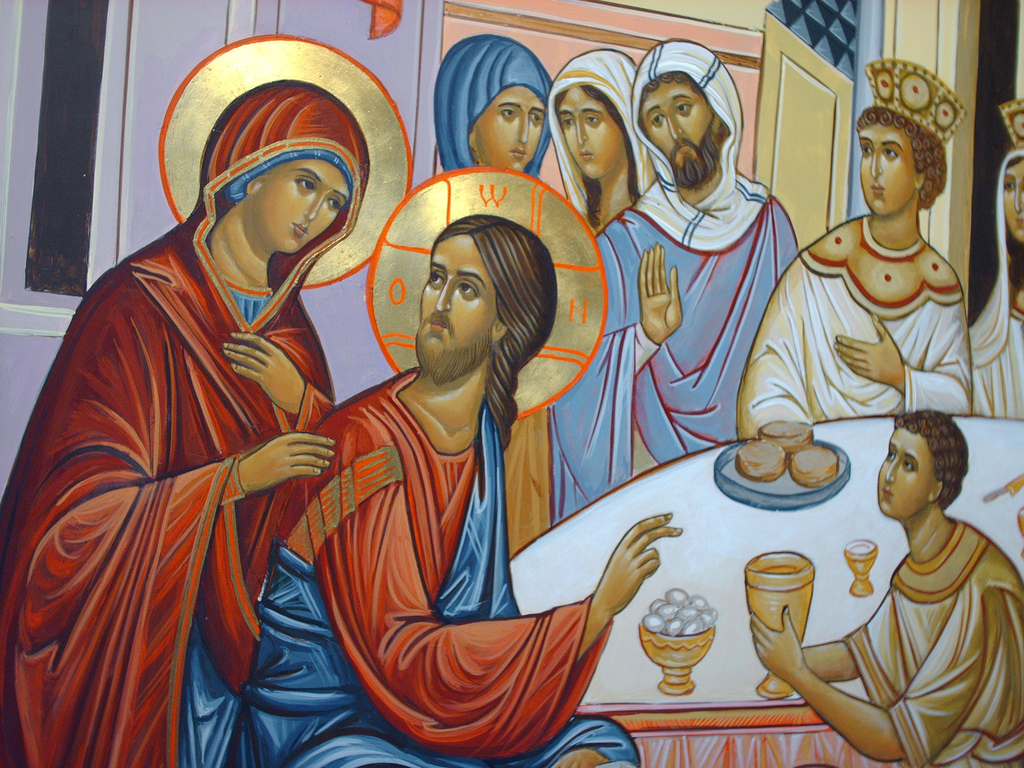Today’s readings remind us that truth and love go hand in hand, and that can sometimes call for a strong love. A weak love fades when things get tough and proves itself to not be love at all.
In the today’s First Reading Jeremiah receives a mission to be a bearer of a message to his own people that they don’t want to hear: an unpleasant truth regarding their immediate political future and military fortunes. Pope Benedict XVI in his encyclical Caritas in Veritatem (Charity in Truth) taught “To defend the truth, to articulate it with humility and conviction, and to bear witness to it in life are … exacting and indispensable forms of charity” (n.1). The Lord encouraged Jeremiah to not to be discouraged and to be firm in proclaiming the truth. Before Jeremiah was even formed in his mother’s womb the Lord had planned for him to be a prophet testifying to the truth. The Kingdom of Judah, due to its infidelities, was going to be conquered by the Babylonians, and Jeremiah was told to deliver that message and to have Judah surrender so that their punishment is more lenient due to their repentance. It wasn’t just his opinion: it was the Lord’s will. Due to his message he was imprisoned, branded a traitor, and threatened with death multiple times. In the end Babylon conquered Judah and suffered all the more for it. It was not just a political and military mistake, but also a turning away from the Lord’s will for them that resulted in their defeat and exile. He wanted them to embrace a hard truth, but they didn’t love him enough to trust him.
In the today’s Second Reading Paul describes love as something that can withstand a lot of punishment. When it doesn’t, there’s a problem. Jeremiah loved the Lord and he loved Judah: the Lord was administering tough love to an obstinate people, and Jeremiah needed to be the messenger of that tough love, despite the hatred he received from his people as a result. A prophet is a spokesperson of the Holy Spirit, an eminently charismatic mission, so it’s no wonder that Paul speaks of the most important spiritual gift of the Holy Spirit: charity. Charity is a theological virtue that the Holy Spirit pours into our hearts at Baptism and that grows throughout our life if with practice it and ask the Holy Spirit to help us with his grace. Other charismatic gifts and virtues are only revealed to be gifts from the Holy Spirit if the gift of charity underlies them all. True charity is tough enough to withstand adversity because superficial sentimentality often masquerades as charity until the going gets tough and instead of love we based our actions and attitudes on passing and voluble feelings.
In today’s Gospel Our Lord probably had Jeremiah’s mission in mind when he said a prophet was without honor in his own country. Our Lord’s childhood friends and loved ones wanted a stage show, not the truth. Like Judah in Jeremiah’s time, they expected a miracle from the Lord that they didn’t deserve. They considered themselves entitled to it. When Jesus’ love gets tough, by drawing from examples of the Lord withholding his favor toward a stubborn and unfaithful people, his former neighbors show the superficiality of their love, but Jesus’ doesn’t diminish a bit. He is telling them what they need to hear, not what they want to hear. They loved the thought of what Our Lord could do for them, not him, and went from speaking highly of him to trying to toss him off a cliff.
Any truth is easier to accept if it is communicated in love. Pope Benedict XVI in his encyclical Caritas in Veritatem (Charity in Truth) taught “All people feel the interior impulse to love authentically: love and truth never abandon them completely, because these are the vocation planted by God in the heart and mind of every human person” (n.1). Today’s readings speak to those on both sides of the conversation: those trying to communicate a hard truth to those they love, and those who spurn that hard truth. Let’s pray to be strong in truth and love when we’re called to share it with those we love. Let’s also accept with humility and love those messengers who help us try to see the truth more clearly as well.
Readings: Jeremiah 1:4–5, 17–19; Psalm 71:1–6, 15, 17; 1 Corinthians 12:31–13:13; Luke 4:21–30.See also 4th Sunday in Ordinary Time, Cycle C, 14th Sunday in Ordinary Time, Cycle B, 17th Week in Ordinary Time, Friday, 22nd Week in Ordinary Time, Monday, and Thursday after Epiphany.




